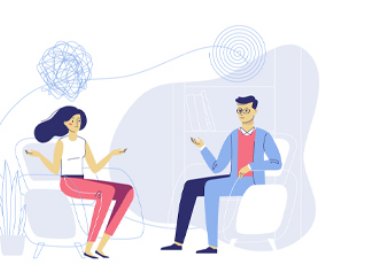Why Soft Skills are important for Your Career?
By admin | Last Updated Aug, 2023

Top soft skills needed to improve your career
Soft Skills are associated with how you work or act. Employers look for two types of soft skills in job candidates: interpersonal skills & communication abilities.
Soft Skills are personal characteristics required for job success such as time management, listening skills, networking, teamwork, creative thinking, and solving problems.
How Do Soft Skills Work?
Soft skills are important for most employers. All occupations require employees to interact with one another in some fashion.
Another important reason managers and businesses seek people with soft skills is that soft skills are transferable skills that may be applied independently of the person’s job. As a result, those applying with soft skills are more adaptive as employees.
Soft skills are very important in customer-service occupations. These employees have direct customer contact. Listening to a customer and providing helpful & polite service necessitates a number of soft skills.
The significance of soft skills:
Soft skills are essential and must-have abilities for any individual. A person’s potential can be limited if they lack these talents. Having soft skills, on the other hand, improves one’s capacity to work with people and has a good impact on one’s job or even one’s personal life through improving ways of engaging with others. Soft skills, as preliminarily said, cannot be tutored and are more delicate to develop. They’re more concerned with a person’s character, connections, and personality.
With the advent of artificial intelligence in practically every sphere of labor, machines are replacing & automating tasks that humans once did. There is, however, no substitute for soft talents. As a result, these become an advantage for a job seeker in order to fit himself into the rapidly evolving employment landscape & match the recruiting standards of any firm.
Types of Soft Skills:
Communication abilities:
Active listening: It is the ability to listen to people attentively and empathetically, grasping their messages, feelings, & points of view without interrupting or leaping to conclusions.
Confidence: It is defined as being self-assured and collected when expressing ideas or opinions and presenting information with boldness and clarity.
Clarity: The ability to communicate information in a simple and comprehensible manner, without jargon or ambiguity that could lead to misconceptions.
Organization: It is the process of systematically structuring thoughts and ideas when conveying and sustaining a well-organized flow of knowledge.
Problem-Solving Ability:
Teamwork: It involves working with others to identify and evaluate problems, brainstorm solutions, & push toward effective problem resolution.
Research: Conducting extensive study in order to obtain important information and facts that may help in understanding and addressing complex challenges.
Risk management: It is the process of assessing the risks and uncertainties connected with various solutions while making informed decisions to reduce bad outcomes.
Creativity: It is defined as thinking creatively and beyond the box, resulting in unique and original solutions to problems.
Creative Skills:
Learning from others: It is being open to new ideas, views, and knowledge from colleagues as well as other sources and applying them to stimulate creative thinking.
Calculated Risks: Taking calculated risks in exploring novel opportunities and concepts while comprehending potential implications.
Curiosity: Great desires to learn, explore, & ask questions, which stimulates the imagination and develops creative thinking.
Broad-mindedness: Having open-minded and responsive to different points of view, cultures, and ideas that can expand one’s creative thinking process.
Adaptability abilities:
Flexibility: The ability to change and adapt with a positive attitude to changing situations, new challenges, & evolving work environments.
Consistency: The ability to maintain a consistent level of performance and attitude despite changing conditions.
Organization: It is the effective arrangement and management of duties and responsibilities, allowing for smoother transitions during times of change.
Confidence: It is having faith in one’s talents and being self-assured amid moments of uncertainty.
Work Ethical Competence:
Time Management: Managing time effectively in order to prioritize work, fulfill deadlines, and accomplish goals efficiently.
Integrity: Honesty, ethical behavior, and a strong feeling of responsibility in all professional relationships.
Persistence: Persisting and remaining devoted to complete tasks and accomplishing goals in the face of obstacles or setbacks.
Attention to detail: Being precise and thorough in one’s work, guaranteeing precision and excellence in all aspects of jobs and projects.
How can you enhance your soft skills?
Though these abilities cannot be taught through formal education, they can be developed and polished. We will go through some of the methods that can help a person improve their soft skills, make a good impression on recruiters, and have a long and successful career at work or in an organization.
Let’s talk about the “how” of improving soft skills.
- Work with a Mentor: Working with a mentor can significantly help you develop and improve your talents. A mentor can help you improve your skills by providing constructive comments and observing relevant skills in action.
- Work on Targeted Skill Sets: Consistent practice will help you improve your soft skills. Identify the precise soft skills that need to be improved and make it a habit to work on them attentively and on a regular basis.
- Learn from Others: Pay attention to professionals who specialize in certain soft skills & mirror their behavior. By applying these observed talents into your daily encounters, you can progressively incorporate them into your own skill set.
The Benefits of Soft Skills:
Everyone possesses some form of soft skill. These talents are developed over time through a combination of experience and past employment held by someone. They are skills that can be transferred & cannot be taken away. Soft skills enable a person to work in any industry or organization & do not limit them to specific jobs or work situations. Soft talents enable a person to display the soft skills he possesses through his personality, traits, and attitude.
Conclusion:
Soft skills are personal characteristics that are necessary for success in any field. Employers place a high value on these abilities because they enhance teamwork & customer service. In a technologically driven employment environment, soft skills are transferable & vital. Improving them via mentorship and practice increases career opportunities and builds stronger connections at work and at home. Soft skills are an important investment for a successful & rewarding career.

